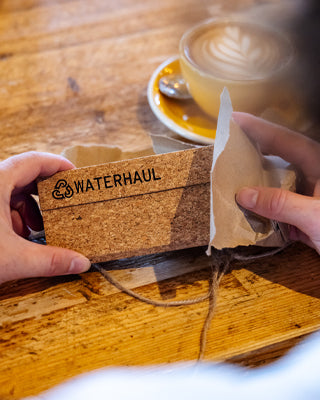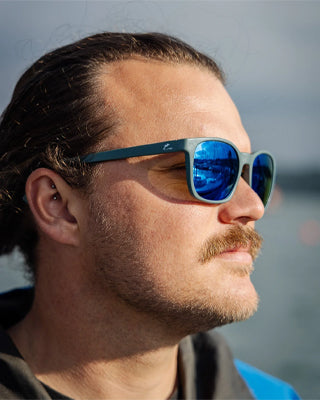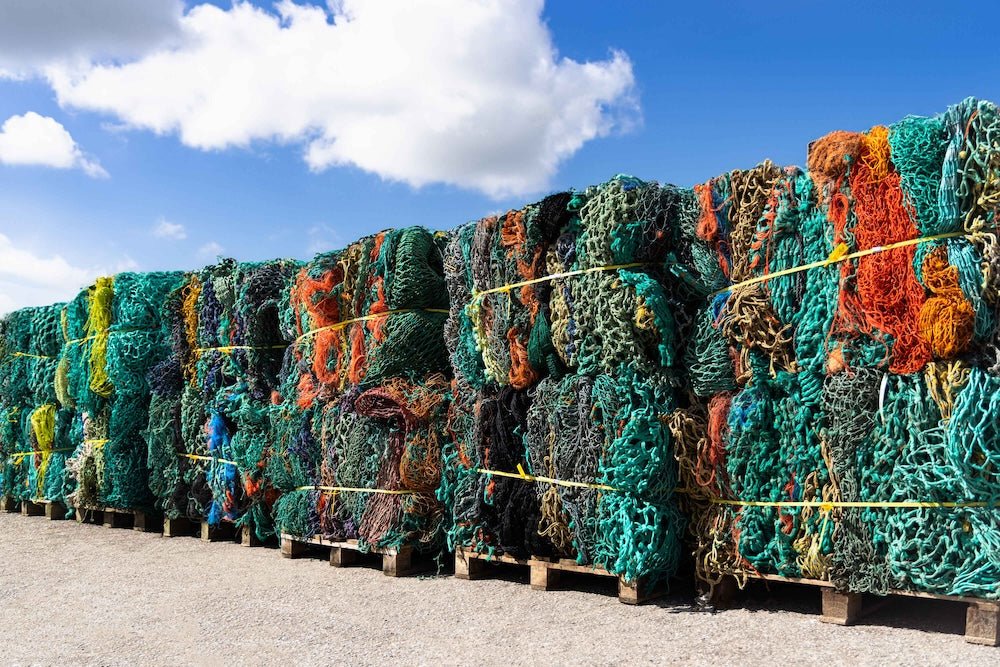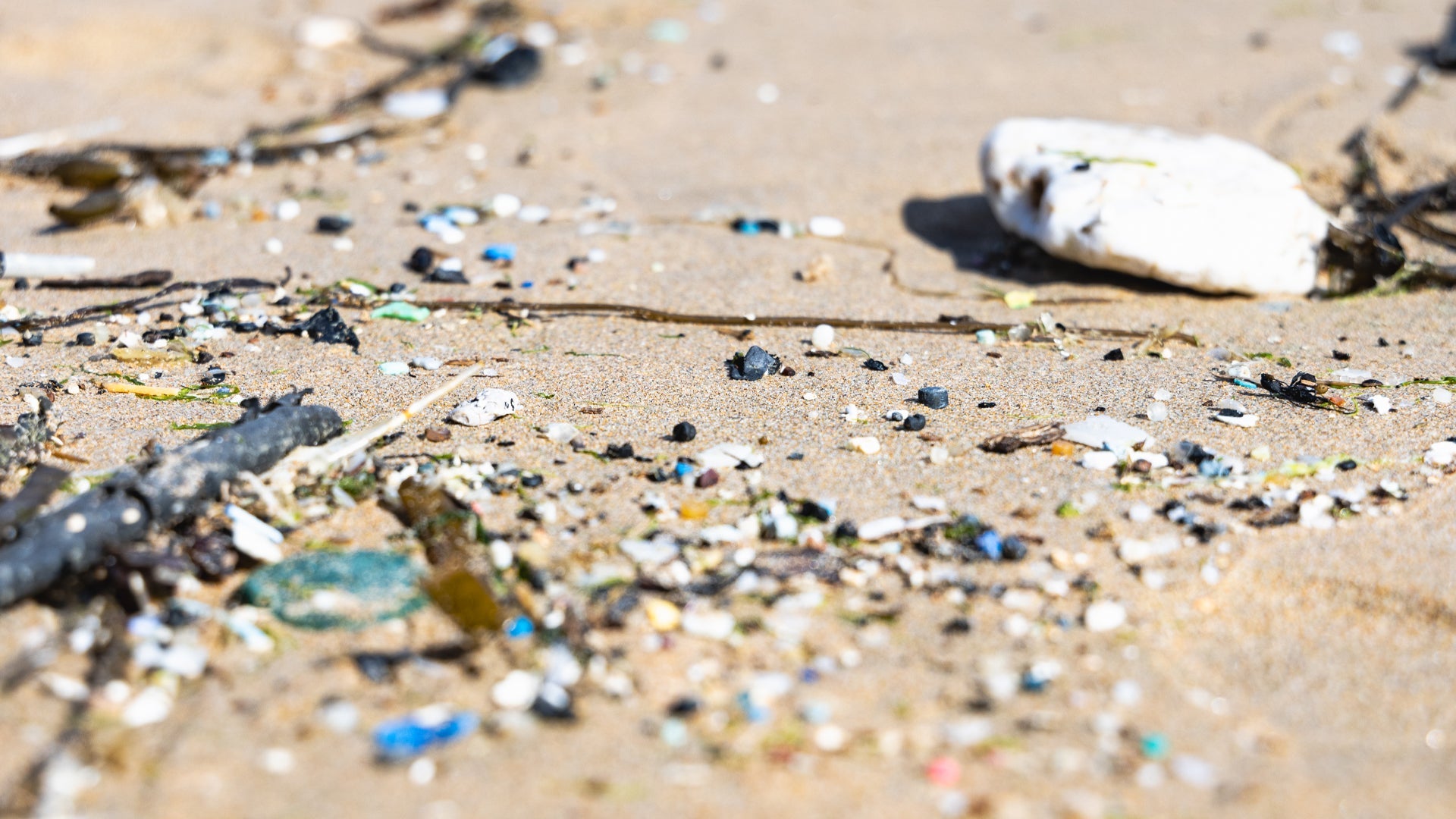
The ocean’s most harmful plastic waste transformed into a resource.
Marine plastic recovered and recycled in the UK, traceable from port to pellet and embedded with impact.
For creating products for change.
Download our full material catalogue
We'll send our PDF catalogue and material datasheets straight to your inbox.
By signing up, you agree to receive occasional emails from us. We’ll never share your details and you can
Unsubscribe at any time.

TRACEABLE MARINE PLASTIC
Traceable Impact
We track the recovery and source location of every KG of fishing gear recovered into our recycling stream, tracing this throughout the process; from port, to pellet, to product.
Performance
Proven performance across a broad range of manufacturing applications, driven by exceptional polymer purity delivered through a patented filtration process.
Circular
We support partner brands to enable circularity across multiple lifecycles and implement takeback schemes and closed loop end-of-life recycling.
Made in UK
All of our marine plastic is recovered and reprocessed entirely within in the UK from end-of-life fishing gear and recovered ghost gear through a innovative, energy efficient process.

POLYMERS WITH A POSITIVE IMPACT
Waterhaul is dedicated to tackling the problem of ghost gear – lost, abandoned, or discarded fishing gear; the most directly harmful form of marine plastic pollution. By transforming this plastic into high-performance polymers, we create value from what was once waste. This process incentivises fishers, harbours, and coastal communities to actively engage and join us in both recovering ghost gear and preventing its future accumulation, contributing to a cleaner, healthier ocean.
TRACEABILITY THROUGHOUT ENTIRE SUPPLY CHAIN
Our rigorous traceability standards mean that we can account for every kilogram of material received at our facility. From pick-up, to pellet, to product, our digital traceability system enables tracking throughout the entire recycling process. Our materials are processed in isolation which means that the pellets we create are made from the exact marine plastics that we feed into the system.
With every purchase of Traceable Marine Plastics from Waterhaul, you’ll receive a complete proportional breakdown of exactly where your materials were recovered from.


PROVEN PROCESS AND CREDENTIALS
Our entire recycling process takes place within the UK, minimising the carbon footprint of our operations and ensuring full traceability. All of our input materials have been sourced from UK harbours and coastline; with the Waterhaul team recovering ghost gear reported in Cornwall and the South West and efficiently recovering end-of-life fishing gear direct from harbours and intercept materials before entering landfill.
We provide clear, documented evidence of our recovery efforts, showcasing the journey from marine waste to performance material. Each batch is carefully processed, with images of our recoveries and clean-up missions available to demonstrate the direct impact of our operations.
IN ASSOCIATION WITH:




Applications
Our traceable plastic pellets have been utilised by a wide range of industries to create sustainable, high-quality products. Available in volumes from 10KG up to full container loads. Our pellets provide a reliable and sustainable alternative that meets the diverse needs of manufacturers. By integrating our pellets into their production processes, companies across the globe are reducing their environmental impact while maintaining the integrity and performance of their products.
BATCH TRACEABILITY
Every batch of Traceable Marine Plastic is provided with detailed datasets on the recovery, sourcing and processing of the marine plastic. View an example of our latest batch via our digital traceability viewer below:
Legend
 Ghost gear
Ghost gear Harbour
Harbour Partner
Partner
Product Traceability Information
Enter Batch Code
FAQS
AS USED BY:
CONTACT US
Interested in sourcing ocean plastic for use in your products or project, or joining us as a marine plastic waste collection partner? Drop us a message and a member of the Waterhaul team will get straight back to you to.


















